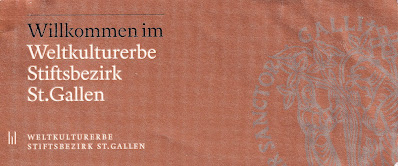
|
|
The stages of a man's life (Click to enlarge). From the present exhibition, Old Age, in the graphic arts collection of the Augustiner Museum. |
The text for the 90-year-old man reads:
At ninety, weak, bent, and lame,
My rotten life is nothing but sorrow.
Sorry, my life is not rotten. Yes, the dizziness is real, but I'm not quite that bent over as the guy in the
picture.
On Friday, the 13th, I invited friends from Freiburg to dinner at the
Oberkirch Restaurant for a second celebration of my 90th birthday.
The first celebration already took place on June 9, with my close family also at this first address on Münsterplatz.
None of my guests suffered from Paraskevidekatriaphobia, because everyone accepted my invitation and came to the dinner party.

|
| A general welcome (©TS) |

|
| Some guests are looking for their seats (©TS) |

|
| The long shot (©TS) |

|
| The left-hand side (©TS) |

|
| The right-hand side (©TS) |

|
| Watch my eyes. I look at you and not on my cheat sheet (©RSW) |

|
| Am I laughing at my own jokes again? (©US) |
*Founded as a reading society in 1807
And have you ever heard of players playing for two clubs? With societies, this is possible. Tonight, at least ten of my guests have dual membership, which will help to generate lively conversations between the two Gesellschaften.
In clubs, it's frustrating when key players are absent.
For a birthday party, it is just sad when guests have to cancel:
Among them are
- The director of the Carl-Schurz-Haus, Friederike Schulte, whom I greatly admire, is on a well-deserved vacation with her family
- The president of the Museumsgesellschaft, Professor Gerald Urban, and his wife, Birgül. They are on a family mission in Turkey and
- My good friend Thomas Becker is bicycling in the south of Sweden.
Above all, I miss the vice president of the Museumsgesellschaft, Professor Sabine Wienker-Piepho, who passed away in Freiburg on May 21 after a serious illness. Here is my obituary.
Since most of you knew Sabine, I would like to ask you to rise for a moment of silence in her memory.
I thank you.
The two Freiburg societies presented here enrich my life and have been an anchor, especially after the death of my wife, Elisabeth.
While the president and vice president of the Museumsgesellschaft are not with us, many other eminent members are here tonight.
The Freiburg-Madison-Gesellschaft is represented by its president, Toni Schlegel, along with his wife, Tatjana; by its vice president, Frauke Feix, and her husband, Günther; and by many well-known members.
And then we have a couple of the most valuable players completing tonight's Kader.
Please feel free to compose your dinner from the menu card. Regarding the white wine, I made an egotistical choice and ordered my favorite Gutedel (Chasselas), which pairs perfectly with white asparagus. Like many Germans from the north, I fremdle (feel alienated) with red wines. So I asked landlord Toni Schlegel, who made a good choice for you.
I wish you all bon appétit. Enjoy your meal.
While my guests were choosing their menu, Toni started to praise me.
N.B.The photos are a belated birthday surprise by Tatjana (©TS), Ulli
(©US), and Renate (©RSW), who shot them to document this memorable evening. I thank you all.
I took the liberty of selecting a few of those photos, editing them, and adding them to this blog. If any of my guests does not want to see his/her picture on this blog, please let me know. I shall delete the photo(s) immediately.

|
|
During Toni's laudatio, Tatjana is admiringly amused, Red Baron is slightly embarrassed, and Rotburg is sternly interested (©US). |

|
| ©US |

|
| In his humorous speech, Harald went back in history (©TS) |
I took the liberty of selecting a few of those photos, editing them, and adding them to this blog. If any of my guests does not want to see his/her picture on this blog, please let me know. I shall delete the photo(s) immediately.
*











































